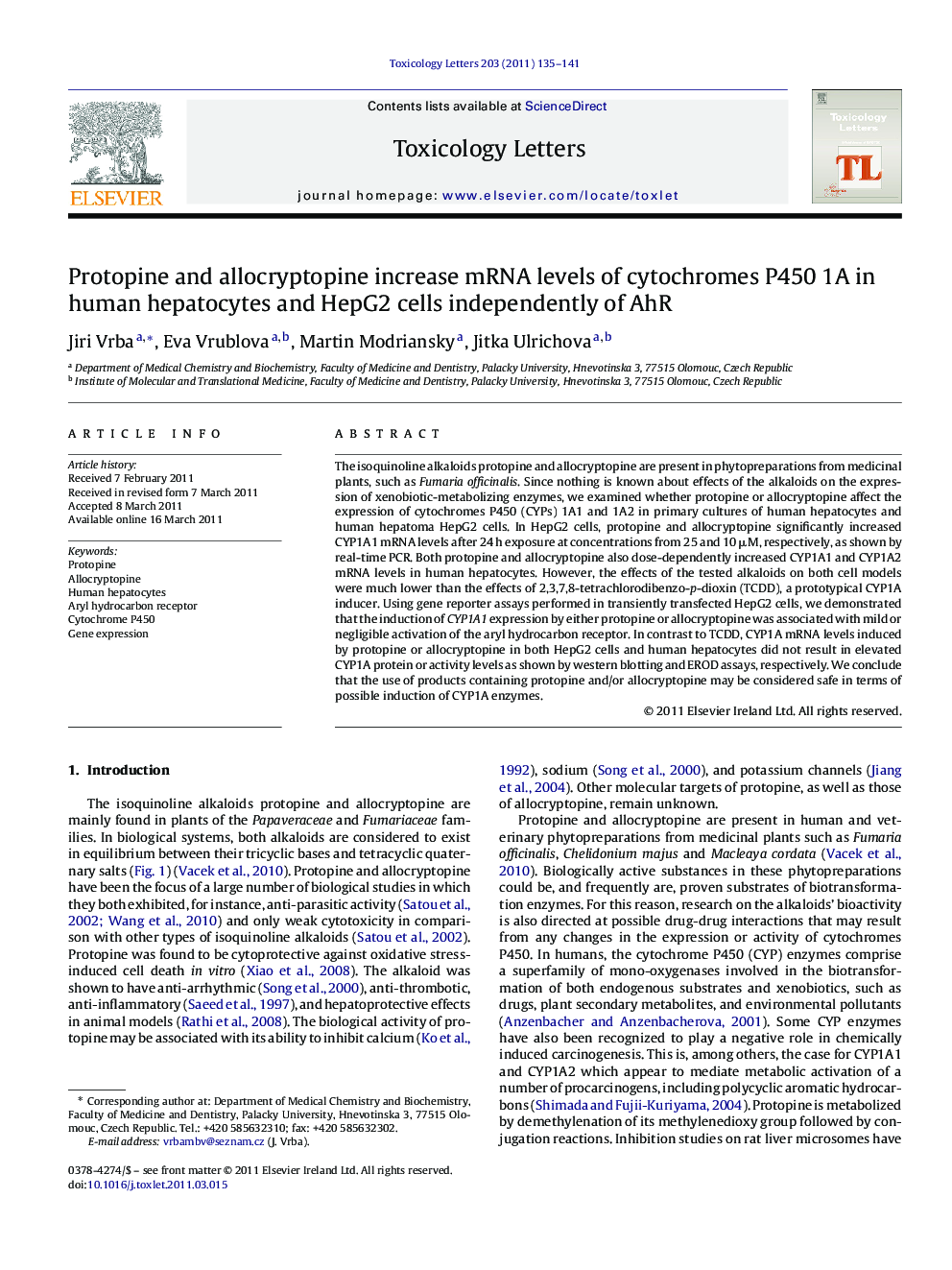| Article ID | Journal | Published Year | Pages | File Type |
|---|---|---|---|---|
| 2600121 | Toxicology Letters | 2011 | 7 Pages |
The isoquinoline alkaloids protopine and allocryptopine are present in phytopreparations from medicinal plants, such as Fumaria officinalis. Since nothing is known about effects of the alkaloids on the expression of xenobiotic-metabolizing enzymes, we examined whether protopine or allocryptopine affect the expression of cytochromes P450 (CYPs) 1A1 and 1A2 in primary cultures of human hepatocytes and human hepatoma HepG2 cells. In HepG2 cells, protopine and allocryptopine significantly increased CYP1A1 mRNA levels after 24 h exposure at concentrations from 25 and 10 μM, respectively, as shown by real-time PCR. Both protopine and allocryptopine also dose-dependently increased CYP1A1 and CYP1A2 mRNA levels in human hepatocytes. However, the effects of the tested alkaloids on both cell models were much lower than the effects of 2,3,7,8-tetrachlorodibenzo-p-dioxin (TCDD), a prototypical CYP1A inducer. Using gene reporter assays performed in transiently transfected HepG2 cells, we demonstrated that the induction of CYP1A1 expression by either protopine or allocryptopine was associated with mild or negligible activation of the aryl hydrocarbon receptor. In contrast to TCDD, CYP1A mRNA levels induced by protopine or allocryptopine in both HepG2 cells and human hepatocytes did not result in elevated CYP1A protein or activity levels as shown by western blotting and EROD assays, respectively. We conclude that the use of products containing protopine and/or allocryptopine may be considered safe in terms of possible induction of CYP1A enzymes.
